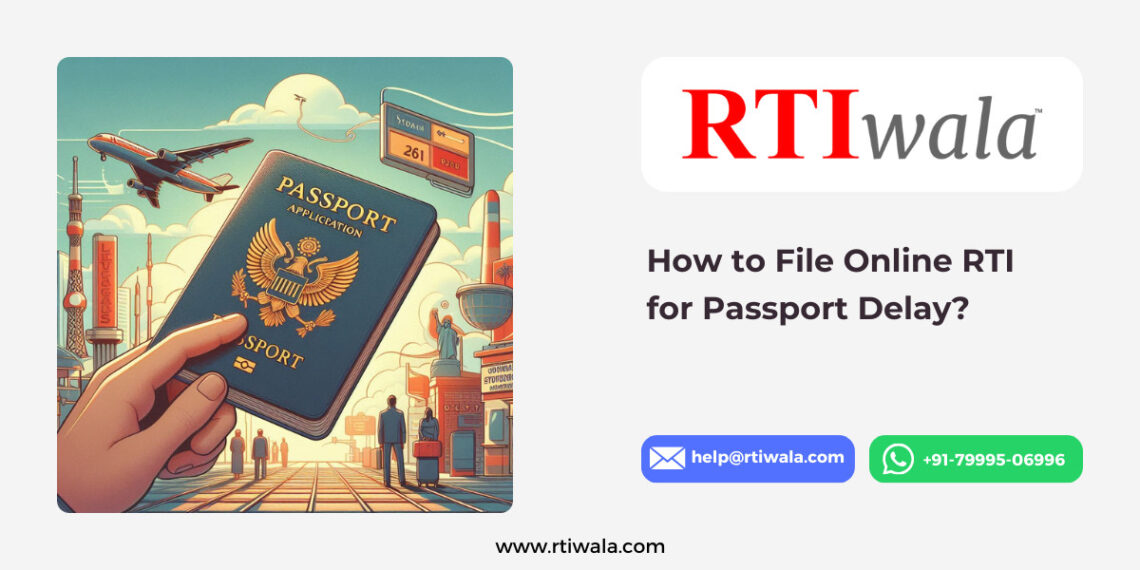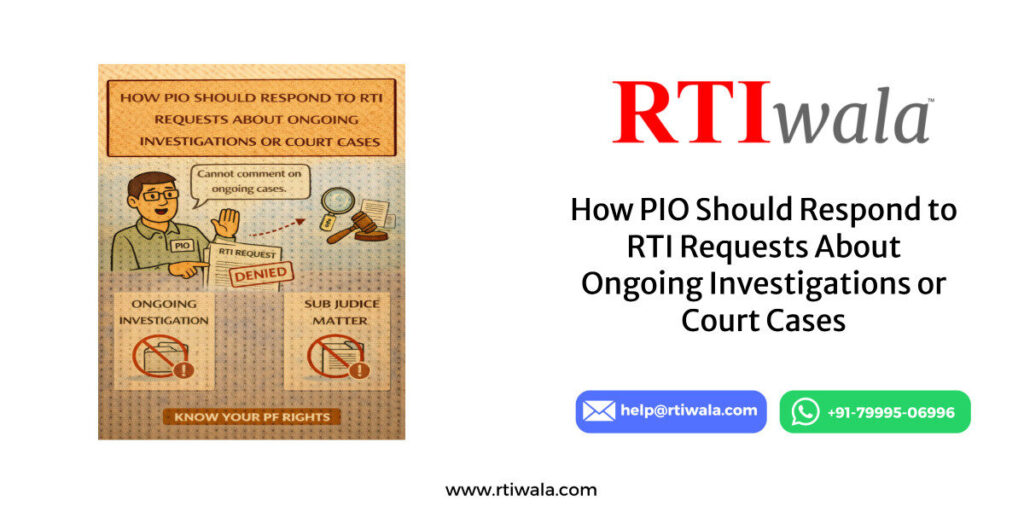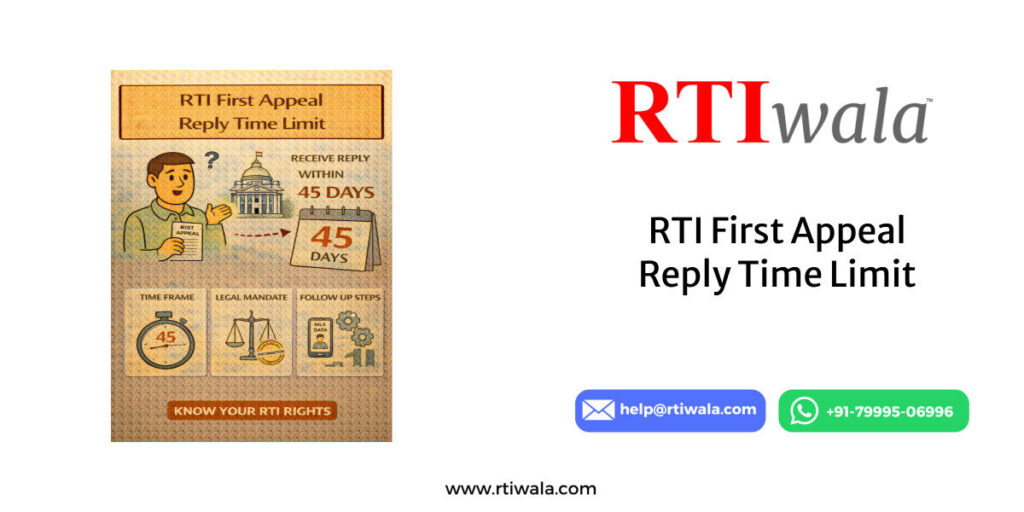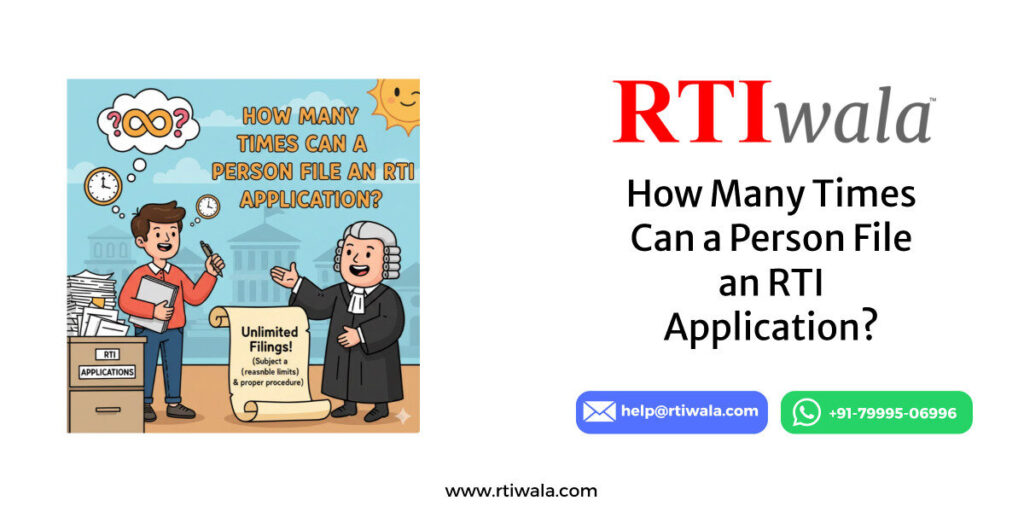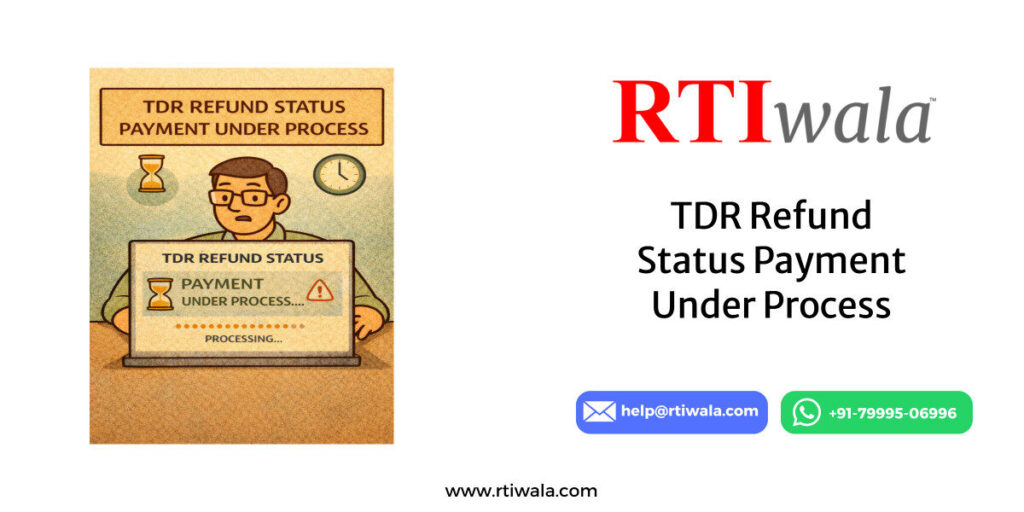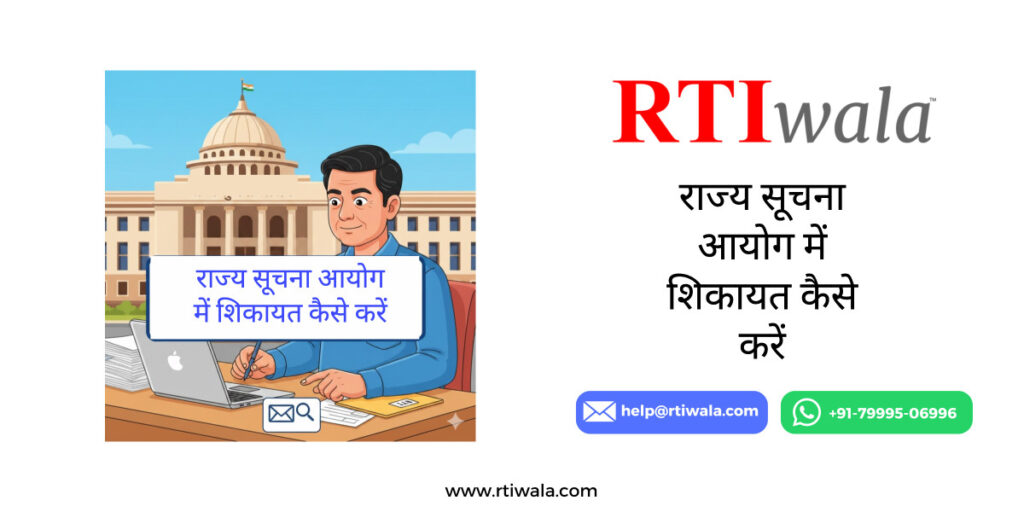Wondering how to file an RTI (Right to Information) for a delayed passport? You’re not alone. Many people find the process intimidating or confusing, but fear not! RTIwala is here to help. In this article, we’ll break down the steps for you in simple, easy-to-understand terms. Whether you’re a seasoned activist or just a curious citizen, understanding how to file an online RTI can empower you to access vital information and hold authorities accountable.
Table of Contents
- What is RTI?
- Why File RTI for Passport Delay?
- How to Draft an RTI Application for Passport Delay
- Where to Submit RTI Application for Passport Delay
- Paying RTI Fees
- Follow-Up on Your RTI Application
- Dealing with Denials or Delays
- Tips for Effective RTI Filings
- Frequently Asked Questions (FAQs)
- Conclusion
What is RTI?
RTI or Right to Information is a fundamental right of every citizen to access information held by public authorities. It empowers individuals to seek transparency and accountability from government bodies, ensuring that democratic principles are up held. Click to known more about RTI.
Why File RTI for Passport Delay?
Filing an RTI can be instrumental in uncovering the reasons behind the delay in your passport application. It promotes transparency, fights corruption, and holds officials accountable. By filing an RTI, you can expedite the processing of your passport and get the necessary answers.
How to Draft an RTI Application for Passport Delay (Step-by-Step Guide 2025)
Delays in passport processing can be frustrating — especially when your application shows “under review” for weeks with no clear update from the Passport Seva Kendra or the Regional Passport Office.
Filing a Right to Information (RTI) is the most transparent and effective way to uncover the exact reason behind the delay and push authorities to act.
Here’s how to draft a legally strong and result-oriented RTI application for passport delay in 2025 👇
Step 1: Address the Correct Authority
Your RTI must be addressed to the Public Information Officer (PIO) at the Regional Passport Office (RPO) where you submitted your application.
Make sure to include the office name and city to avoid misrouting.
Example:
To,
The Public Information Officer,
Regional Passport Office,
Bhopal – 462016
Step 2: Write a Clear Subject Line
Your subject should immediately convey the issue and reference number.
Example:
Subject: Seeking information regarding delay in issuance of Passport – File No. BPL1234567890123
A specific subject helps the PIO identify your case quickly and locate your records.
Step 3: Frame Clear, Factual Questions
Ask for data-based and record-related details, not opinions or explanations.
Your goal is to extract official information about your file’s progress.
Sample Questions:
- Please provide the current status of my passport application (File No. BPL1234567890123).
- Kindly mention the date when police verification report was received by the RPO.
- Please provide the name and designation of the officer responsible for processing my application.
- Mention if any deficiency or objection has been recorded in my file.
- Specify the expected time frame for dispatch of my passport as per rules.
Avoid emotional or accusatory language — RTI is meant to seek facts, not lodge complaints.
Step 4: Include Your Applicant Details
At the end of your RTI, mention your:
- Full Name
- Postal Address
- Mobile Number / Email ID
- Passport Application File Number
This ensures your RTI reply reaches you correctly. Always double-check your file number before submission.
Step 5: Attach the Application Fee
As per Section 6(1) of the RTI Act, 2005, application fee is mandatory. You can pay through:
- Indian Postal Order (IPO) drawn in favor of Public Information Officer, Ministry of External Affairs
- Demand Draft / Banker’s Cheque
- Online Payment via the RTI Online portal
Step 6: Submit Your RTI Properly
You can submit your RTI:
- Offline: By post to your Regional Passport Office
- Online: Instantly through Online RTI Filing with RTIwala
Once received, the authority must respond within 30 days, providing file movement details, responsible officers, and reasons for the delay.
Why Most Applicants Face Delays
| Common Reason | What Happens | How RTI Helps |
|---|---|---|
| Police verification pending | Application stuck indefinitely | RTI forces disclosure of report receipt date |
| File under “review” | No timeline shared | RTI compels authority to reveal exact reason |
| Missing documents | Applicant never informed | RTI ensures written clarification |
| Officer inaction | No accountability | RTI creates a legal paper trail |
A properly drafted RTI makes officials accountable and often expedites passport issuance within weeks.
Let Experts Draft It for You
An incorrectly worded RTI may get rejected or receive vague replies. RTIwala’s legal experts ensure your questions are framed precisely, addressed to the right authority, and filed in full compliance with the RTI Act.
📞 Helpline: +91-7999-50-6996
Where to Submit RTI Application for Passport Delay
Submit your RTI application to the designated Public Information Officer (PIO) of the Regional Passport Office where you applied. Ensure it reaches the correct authority to avoid delays or complications. RTIwala online platform can assist you in finding the right PIO for your request.
Follow-Up on Your RTI Application
After submitting your RTI application, follow up with the PIO if you haven’t received a response within the stipulated time. Persistence can expedite the process and ensure timely access to information. RTIwala offers a tracking service to monitor the status of your application and follow up on your behalf.
Dealing with Denials or Delays
If your RTI application is denied or delayed, you have the right to appeal. Familiarize yourself with the appeals process outlined in the RTI Act and escalate the matter if necessary to obtain the requested information. RTIwala legal experts can guide you through the appeals process and help you file the necessary paperwork.
Tips for Effective RTI Filings
- Be Specific: Clearly articulate the information you seek to avoid ambiguity.
- Research: Understand the jurisdiction and authority responsible for the information you need.
- Keep Records: Maintain copies of all correspondence and receipts related to your RTI application.
- Stay Persistent: Follow up diligently to ensure timely responses and resolution.
- Seek Guidance: Don’t hesitate to seek assistance from RTI activists or legal experts if needed. RTIwala offers comprehensive support solution to help you at every step.
Frequently Asked Questions (FAQs)
- How long does it take to get a response to an RTI application?
- Public authorities are required to respond within 30 days of receiving the application.
- What happens if there is no response to my RTI application?
- You can file an appeal with the Appellate Authority if you do not receive a response within the stipulated time.
- Can I file an RTI online application?
- Yes, you can file an RTI application online through various government portals or prefer RTIwala to avoid risk.
- Is there a fee for filing an RTI application?
- Yes, there is usually a nominal fee. The amount varies depending on the jurisdiction.
- Can RTIwala help me with my RTI application?
- Absolutely! RTIwala provides expert assistance, drafting services, and follow-up support to ensure your RTI application is successful.
Conclusion
Filing an RTI empowers citizens to exercise their right to information, fostering transparency and accountability in governance. By understanding the process and following best practices, you can effectively utilize RTI to access vital information and promote democracy. And remember, RTIwala is here to assist you with a range of solution designed to make filing an RTI straightforward and stress-free.












































